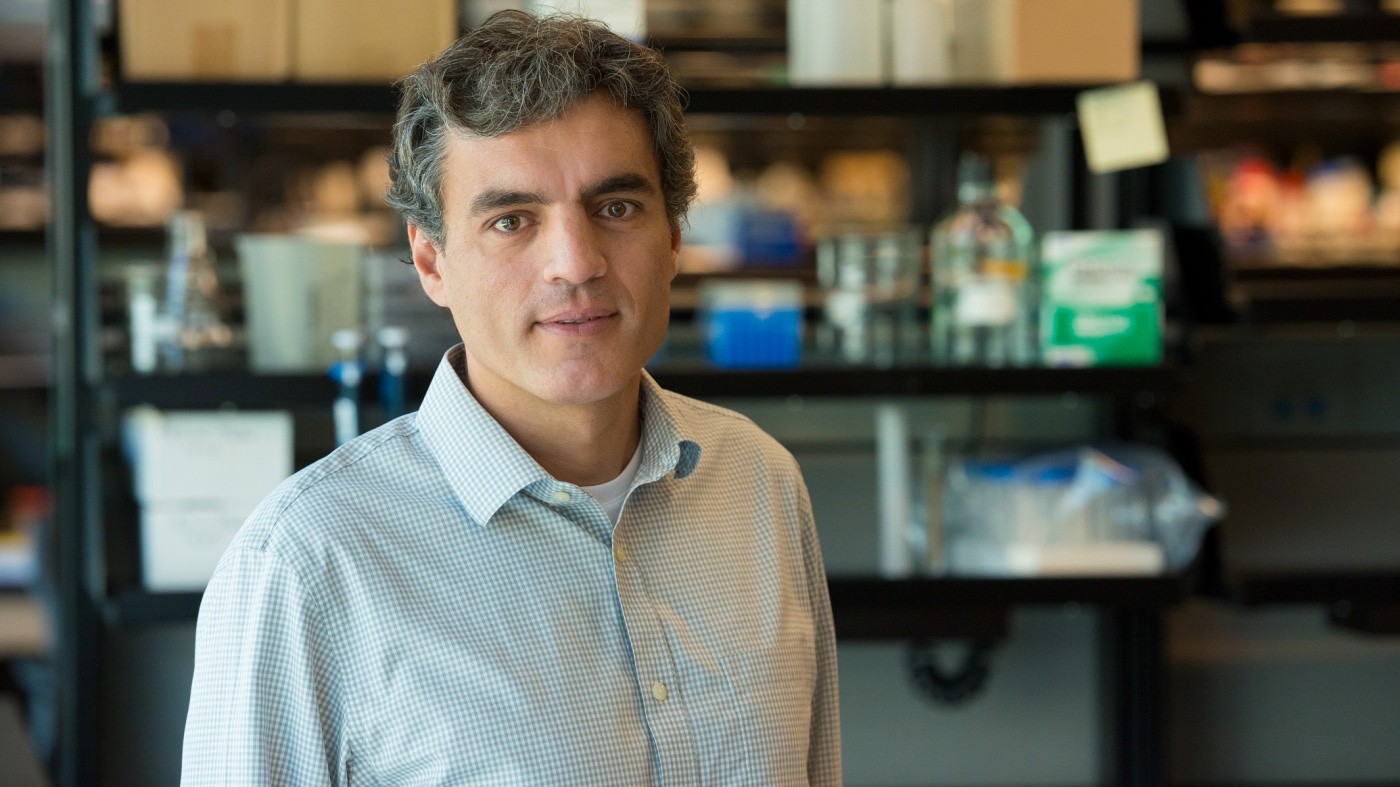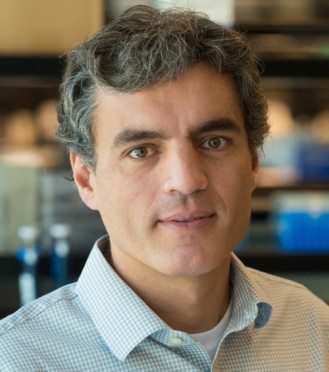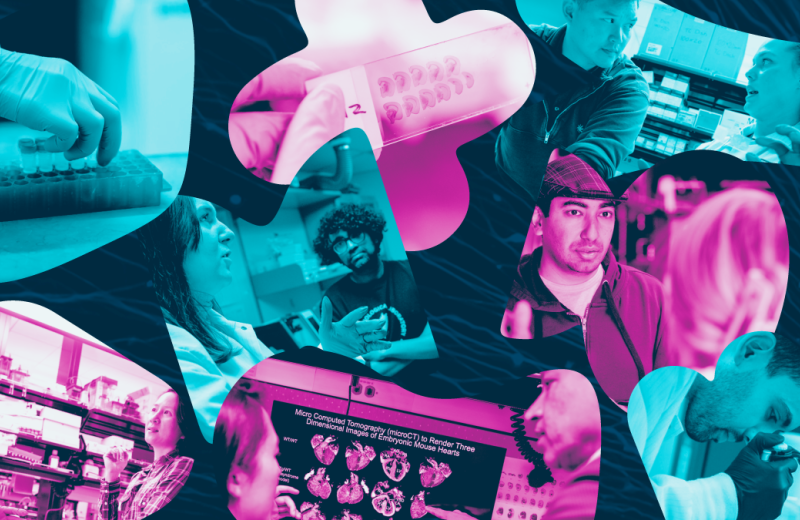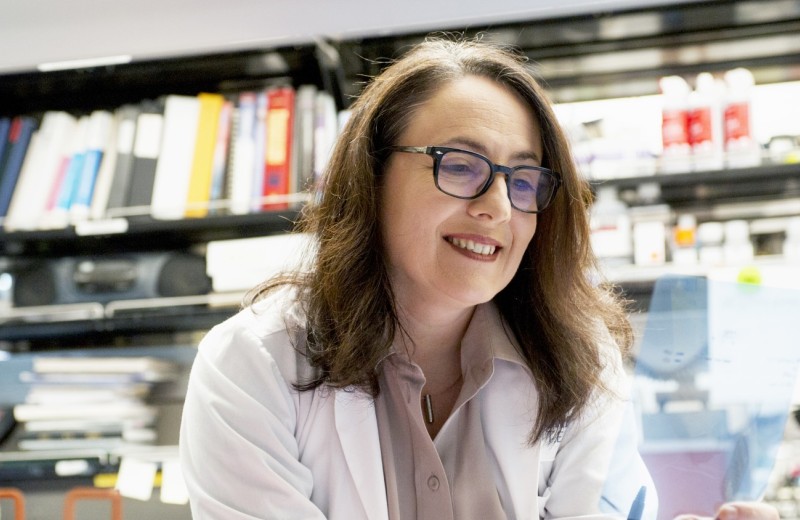Gladstone NOW: The Campaign Join Us on the Journey✕

Jorge Palop, PhD, springboarded his career from a postdoctoral scholar to an assistant investigator at the Gladstone Institutes. [Photo: Chris Goodfellow, Gladstone Institutes]
Jorge Palop, PhD, has been appointed to assistant investigator at the Gladstone Institute of Neurological Disease. Palop, who was previously a staff research investigator at Gladstone, will also have a joint appointment as an assistant professor in the Department of Neurology at the University of California, San Francisco (UCSF).
“Gladstone has been a tremendous place to train and develop my research,” said Palop. “I am honored to join the faculty of talented investigators at Gladstone and UCSF and to continue my fight against Alzheimer’s and related conditions at these exceptional institutions.”
Palop studies how normal processes in the brain are impaired by neurological diseases, particularly Alzheimer’s disease. In a mouse model of Alzheimer’s disease, he discovered abnormal patterns of brain activity that change the ability to learn and create memories. Similar brain activity has been detected in Alzheimer’s patients. Palop’s laboratory is now studying what causes these abnormal patterns and testing therapies that could prevent or reverse them.
“Jorge has developed a highly innovative research program focusing on the role of interneuron and network dysfunction in Alzheimer’s disease and other cognitive disorders,” said Lennart Mucke, MD, director of the Gladstone Institute of Neurological Disease. “He has been remarkably successful at Gladstone, and I have no doubt that the new appointment will allow him to reach even higher levels of achievement.”
Alzheimer’s disease is a complex disease, and Gladstone has assembled an outstanding group of investigators with complementary skills and approaches to find a cure. Palop’s trailblazing research efforts in cognitive neuroscience, brain-network dysfunction, and mouse models of disease will play a key role in Gladstone’s overall research program.
Palop received a BS in biology and a PhD in neuroscience from the University of Valencia in Spain. He first joined Gladstone in 2001 as a postdoctoral scholar with Mucke. In 2008, he was promoted to staff research investigator, a springboard position that helped him launch his own research program. In 2010, he was appointed to assistant professor of neurology at UCSF. He has received several honors and awards from the Spanish Ministry of Education and Science, the Fullbright program, the Hillblom Center for the Biology of Aging, and the UCSF Memory and Aging Center. He also received a Ramón y Cajal Award, an S.D. Bechtel Young Investigator Award, and, most recently, grants from the National Institutes of Health and the Alzheimer’s Association. He has also established partnerships with major pharmaceutical and biotechnology companies to translate his discoveries into clinical therapies.
Featured Experts
Support Our COVID-19 Research Efforts
Gladstone scientists are moving quickly to respond to the coronavirus outbreak. Help us end this pandemic.
Gladstone’s Scientific Highlights of 2025
Gladstone’s Scientific Highlights of 2025
From fundamental insights to translational advances, here’s how Gladstone researchers moved science forward in 2025.
Gladstone Experts Alzheimer’s Disease Autoimmune Diseases COVID-19 Neurological Disease Genomic Immunology Cardiovascular Disease Data Science and Biotechnology Infectious Disease Conklin LabScience in Seconds | The Thinking Microscope: Research Powered by an AI Brain
Science in Seconds | The Thinking Microscope: Research Powered by an AI Brain
In this video, Steve Finkbeiner and Jeremy Linsley showcase Gladstone’s groundbreaking “thinking microscope”—an AI-powered system that can design, conduct, and analyze experiments autonomously to uncover new insights into diseases like Alzheimer’s, Parkinson’s, and ALS.
Gladstone Experts ALS Alzheimer’s Disease Parkinson’s Disease Neurological Disease Finkbeiner Lab AI Big DataKaterina Akassoglou Receives Zenith Fellows Award to Advance Alzheimer’s Research
Katerina Akassoglou Receives Zenith Fellows Award to Advance Alzheimer’s Research
Akassoglou has opened doors to understanding how the blood protein fibrin is involved in Alzheimer’s and other neurodegenerative diseases.
Awards News Release Alzheimer’s Disease Center for Neurovascular Brain Immunology Akassoglou Lab




